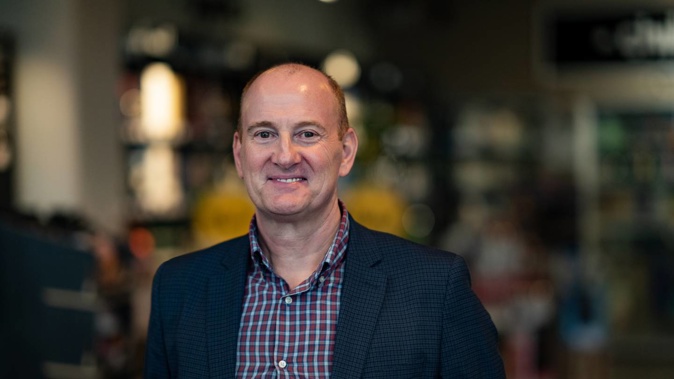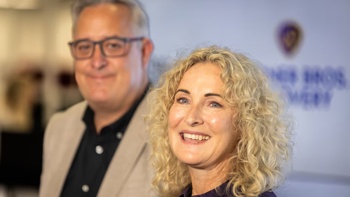
A new initiative will have mental health clinicians train teachers to identify and support rangatahi experiencing mental health issues.
Under the early intervention programme, mental health clinicians working in Te Whatu Ora’s Marinoto (Child and Adolescent Mental Health) team will implement an apprenticeship training model for teachers in some intermediate schools in North and West Auckland.
The project has an initial capacity of up to 18 schools annually, with those prioritised in the first stage of the programme selected based on their rate of referrals to secondary mental health services.
The initiative’s model will support teachers who are trained in the approach to deliver the programme independently in subsequent years, significantly increasing the number of students who can access support.
The launch of the Skills Training for Emotions Problem Solving for Adolescents (STEPS-A) programme follows a successful trial in West Auckland secondary schools.
STEPS-A is an evidence-based dialectical behaviour therapy (DBT) apprenticeship programme that aims to improve the social-emotional wellbeing of young people. Schools are provided with expert clinicians to train and support teachers for the first year.
Michele Kooiman, operations manager for Child, Youth and Family Mental Health Services for Te Whatu Ora, Waitemāta, says the course has the flexibility to adapt to the specific needs of each school, within the guidelines of the programme.
She says ongoing evaluation will also capture data on the programme’s effectiveness among students from diverse cultural backgrounds.
“Research shows almost a quarter of teens have shown symptoms of depression — double the rate of 2012. Six per cent of those surveyed report attempted suicide in the past year. LGBTQIA+ rainbow youth, Māori and Pasifika females are especially vulnerable with up to 57 per cent reporting depressed mood.
“The STEPS-A programme is designed to help teachers on the front line to identify and support students to develop the skills to manage the challenges they are experiencing — before they reach a crisis point,” she says.
- Health Minister insists figures on the number of mental health beds don't tell the full story
- New data states one in two New Zealanders feel stressed or depressed
- John MacDonald: When it comes to mental health, the Govt is failing us
Murray’s Bay Intermediate dean Shannon Robinson says she really enjoyed co-teaching the programme and can see the benefits.
/cloudfront-ap-southeast-2.images.arcpublishing.com/nzme/DAFC7GYQ6NHBLOYTLGEYRZLPLY.png) Murrays Bay Intermediate dean Shannon Robertson. Photo / Supplied
Murrays Bay Intermediate dean Shannon Robertson. Photo / Supplied
“Lessons are cleverly adapted to suit our clientele and this particular age group, who love to do and act and play. I learnt so much and really value this opportunity for our students. This is extremely beneficial, and we are putting in a preventative programme which makes real sense,” she says.
Allan Pollard, CEO of The Trusts, a local social enterprise that has provided financial support to expand the initiative throughout the region, says the programme is designed to maximise the use of clinical resources in local communities.
He says trial data shows the programme can reduce the time students require away from school, enable them to better manage emotions and behaviours, and reduce referrals and disciplinary action.
“The STEPS-A programme helps participants to develop techniques to manage distress tolerance, mindfulness, emotion regulation and interpersonal effectiveness.
“It is widely recognised that these skills are beneficial for adolescents who struggle emotionally and behaviourally with peer and family relationships, academic pressure, bullying, substance abuse, self-harm and antisocial behaviour.
“The initial trial data shows the initiative resonates with those who take part in the 30-week course with 80 per cent of those completing STEPS-A reporting they will use the skills and 90 per cent indicating the skills would be helpful for others.
“We believe this initiative has the potential to grow organically from its foundation in West Auckland to support thousands of rangatahi around New Zealand with a range of mental health needs,” he says.
The STEPS-A programme has been supported by Well Foundation and Ministry of Education, which will provide guidance on school prioritisation and paid release time for teaching staff involved.
Where to get help
If it is an emergency and you or someone else is at risk, call 111.
For counselling and support
Lifeline: Call 0800 543 354 or text 4357 (HELP)
Suicide Crisis Helpline: Call 0508 828 865 (0508 TAUTOKO)
Need to talk? Call or text 1737
Depression helpline: Call 0800 111 757 or text 4202
For children and young people
Youthline: Call 0800 376 633 or text 234
What’s Up: Call 0800 942 8787 (11am to 11pm) or webchat (11am to 10.30pm)
For help with specific issues
Alcohol and Drug Helpline: Call 0800 787 797
Anxiety Helpline: Call 0800 269 4389 (0800 ANXIETY)
OutLine: Call 0800 688 5463 (0800 OUTLINE) (6pm-9pm)
Safe to talk (sexual harm): Call 0800 044 334 or text 4334
All services are free and available 24/7 unless otherwise specified.
For more information and support, talk to your local doctor, hauora, community mental health team, or counselling service. The Mental Health Foundation has more helplines and service contacts on its website.
Take your Radio, Podcasts and Music with you









